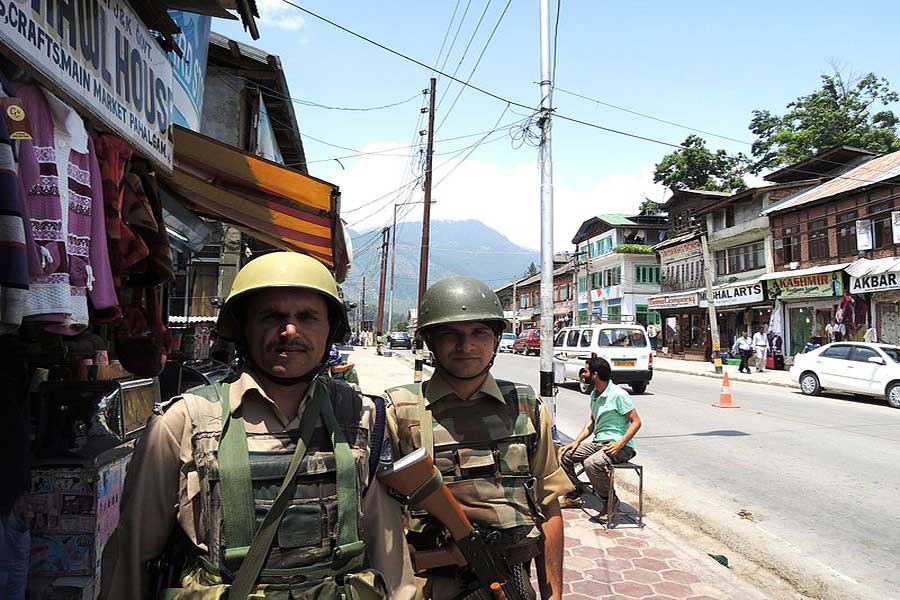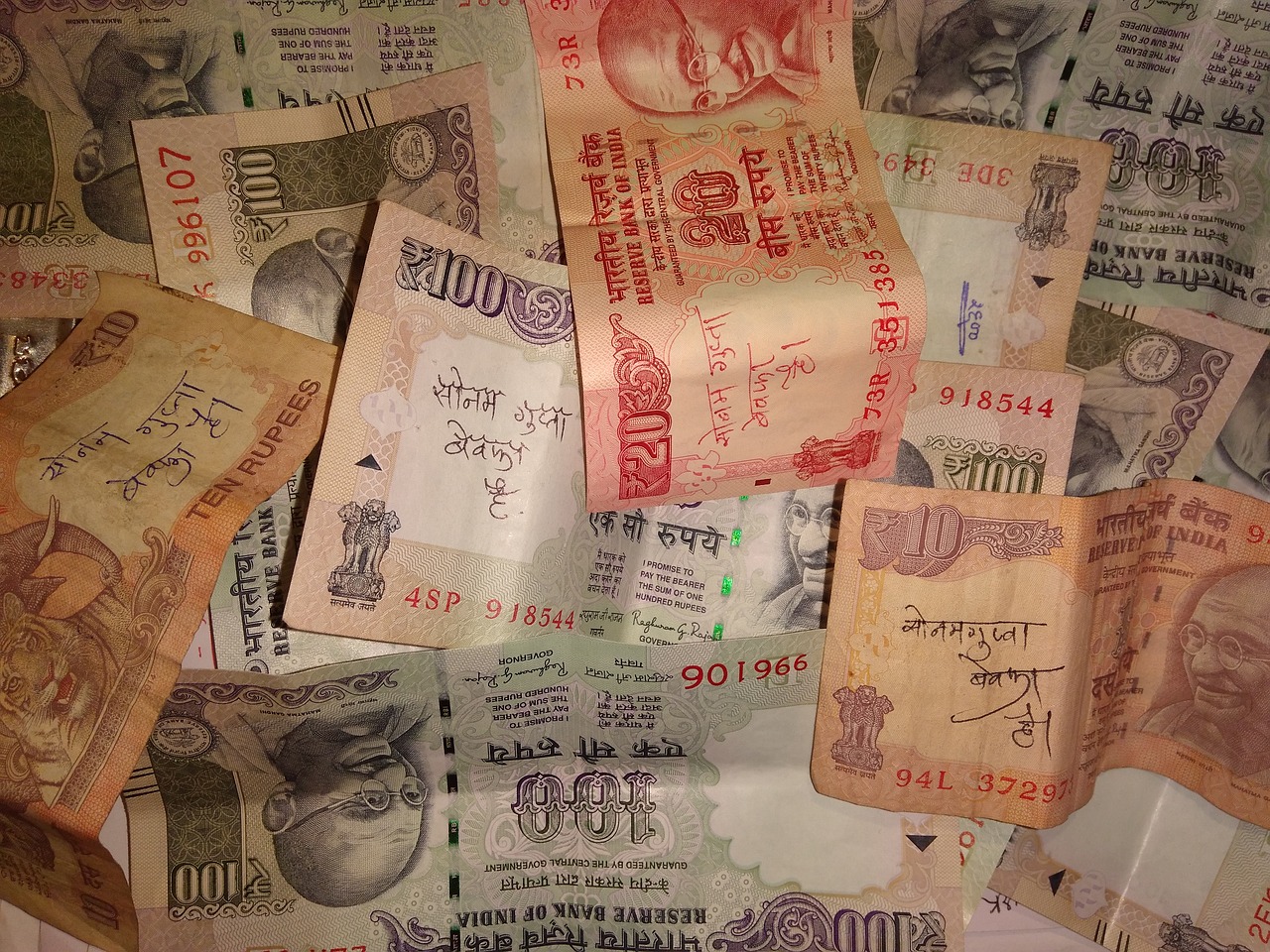When I was a child, I used to watch these films—films about an evil force that rose to power and swept across Europe; films about powerful men who believed that they were better than everyone else; films about armies invading and occupying; films about soldiers patrolling the streets and demanding: “Ihre Papiere, Bitte”—Your Papers, Please; films about people who lived in terror, afraid to even whisper about what they really thought; films about ruthless men who abducted people from their homes and shipped them away to far-off prison camps to die.
As I grew up, I learned the history behind these films.
In 1938, Adolf Hitler marched Nazi troops into Austria. Almost the whole world remained silent while Hitler annexed Austria. A few months later, the Nazis annexed the Sudetenland—with the agreement and approval of the world! Then came Kristallnacht—the night of broken glass—the first Nazi pogrom against the Jews.
Today, we are witness to another annexation—in India, the Hindu Nationalist Bhartiya Janata Party (BJP), the political wing of the Rashtriya Swayamsevak Sangh—a paramilitary outfit thought to be inspired by the Nazis—has risen to power for a second term with a sizable majority.
The affiliates of RSS have famously engineered and instigated riots—in 2008, Christians were targeted in the state of Odisha; in 2002, Muslims were the victims. Under the watch of then Chief Minister Narendra Modi, thousands of Muslims in Gujarat were brutalized, gang-raped, beaten to death, hacked to pieces, and burned alive.
Instead of being unseated for not doing “Raj Dharma”—as then Prime Minister Atal Bihari Vajpayee lamented–Modi was elected as the Prime Minister of India. After the BJP’s electoral sweep across India, minorities have begun to be lynched on the streets in broad daylight in the name of the Holy Cow, and those who raise voices of dissent are oppressed. Under Modi’s regime, writes Dalit professor Anand Teltumbde, the RSS has “unleashed the Hindutva gangs to carry out its writ reminiscent of the Black-shirts of Mussolini and Brown-shirts of Hitler.”
Almost a month ago, the world watched as India’s Hindu Nationalist party implemented one of the top items on its agenda with shameless tyranny.
As Modi tore up the contract between India and Kashmir, he marched tens of thousands of troops into that small northern region—a region approximately the same size as Austria. Now, Kashmir is behind an iron curtain.
Oppression is nothing new in Kashmir—a place which has a vast history of subjugation, enforced disappearances, staged encounters, mass rapes, massacres, and mass graves. Generation after generation of Kashmiris have grown up in a land where abnormal is normal—a land where the people live in fear, a land where people get abducted from their homes and are taken away, never to be seen again.
The weight of the oppression in Kashmir is illustrated by the life and death of Jalil Andrabi. Andrabi, a Kashmiri human rights attorney, wanted to warn the world. Andrabi said, “The magnitude of the atrocities and the crimes being perpetrated on the people of Kashmir is both macabre and heart breaking.” Andrabi reported, “More than 40,000 people have been killed, which includes all—old men and children, women, sick and infirm. The youth of Kashmir have been mowed down. They are tortured in torture cells and, as result of this, thousands of youth have been killed in police custody.”
What happened to Andrabi? In 1996, days before he was scheduled to speak at the United Nations Human Rights Council in Geneva, Andrabi was allegedly abducted by the Indian Army. Twenty days later, his body, tied up in a sack, washed ashore on the Jhelum River. His hands were tied behind his back, eyes gouged out, facial bones crushed. He had been killed with a gunshot to the head.
That was over twenty years ago, when Kashmir still had constitutionally guaranteed autonomy. Since August 5, Modi’s regime has dropped an iron curtain over the entire Kashmir.
His regime has mass arrested the entire civil society—politicians (both mainstream and separatist), religious leaders, businessmen, heads of industry, teachers, academics, activists, teenagers, and even children. These people are seized without arrest warrants. They are held without charges. They are not brought to trial—they can’t be because they’re not being charged with anything! Many have even been shipped away to far-off prisons outside the region.
The situation is not much better for those who have not been arrested. For four weeks, Kashmir has been under siege. The whole region is under curfew as people are forbidden to leave their homes. Kashmiris are living in an open air prison. Under Modi’s regime, Kashmir has been turned into a massive detention camp.
But perhaps the greatest atrocity of all is the communications blackout. Since 5 August, Kashmiris all around the world have been denied the ability to contact their loved ones back home.
The fear that India wants the land of Kashmir without the people of Kashmir has materialised, and Kashmiris are muzzled. They are suffocating, unable to find any room to breathe as the boot of oppression presses down upon their throats.
Some people say that the Kashmir issue is a bilateral issue between India and Pakistan. Some say that the issue is an internal affair of India. I say that the issue is one of Kashmiris and what they want for Kashmir. Kashmiri voices—and Kashmiri voices alone—are the voices which matter when deciding the future of Kashmir.
Yet Kashmiris have been rendered voiceless by oppression. To those who refuse to raise their voices for the voiceless, I say—silence is consent.
Fifty-six years ago, the Reverend Dr. Martin Luther King Jr. sat writing a letter in the Birmingham, Alabama jail. “Injustice anywhere is a threat to justice everywhere,” he wrote. Seventy-three years ago, a German pastor who survived a Nazi concentration camp wrote something similar. Pastor Martin Niemoller wrote:
“First they came for the socialists, and I did not speak out —
Because I was not a socialist.
Then they came for the trade unionists, and I did not speak out —
Because I was not a trade unionist.
Then they came for the Jews, and I did not speak out —
Because I was not a Jew.
Then they came for me — and there was no one left to speak for me.”







